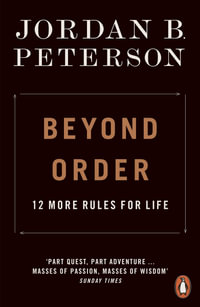| Preface | p. 11 |
| Abbreviations | p. 13 |
| Chronological table | p. 17 |
| Introduction | p. 23 |
| The identity of Edmund Burke | p. 23 |
| The Revolution of 1688 | p. 38 |
| Burke's knowledge of France | p. 43 |
| The genesis of the Reflections | p. 53 |
| Burke's theory of the French Revolution | p. 69 |
| The political theory of the Reflections | p. 85 |
| Burke's crusade against the Revolution | p. 97 |
| Burke's later influence | p. 109 |
| A note on the text | p. 113 |
| Biographical guide | p. 115 |
| Bibliography | p. 125 |
| Reflections on the Revolution in France | p. 141 |
| Preface [iii-iv] | p. 143 |
| The English constitution and the Revolution of 1688 | p. 145 |
| Origins of the work [1] | p. 145 |
| The Society for Constitution Information and the Revolution Society [3] | p. 146 |
| Burke on liberty and prudence [7] | p. 150 |
| Astonishing nature of French revolution [11] | p. 154 |
| Richard Price's sermon; Nonconformity [12] | p. 155 |
| Price misrepresents the constitution [16] | p. 159 |
| Price's general interpretation of 1688 reviewed [20] | p. 161 |
| Right to choose governors denied; hereditary principle reasserted [22] | p. 163 |
| Right to cashier governors for misconduct denied [37] | p. 176 |
| Right 'to form a government for ourselves' denied [44] | p. 181 |
| Liberties as an inheritance [45] | p. 181 |
| The French Revolution | |
| France might have repaired ancient constitution [50] | p. 185 |
| Intrinsic evils of French Revolution, [54] | p. 189 |
| Explained by composition of National Assembly [58] | p. 192 |
| Its Third Estate: predominance of lawyers [60] | p. 194 |
| Its First Estate: predominance of minor clergy [67] | p. 200 |
| Its Second Estate: role of discontented nobility [68] | p. 201 |
| Qualifications for government: virtue, wisdom, property [72] | p. 205 |
| Consequent flaws in future French constitution [77] | p. 209 |
| Price's threat to extend French principles to England [79] | p. 211 |
| Destructive consequences of natural rights claims [85] | p. 215 |
| Contrasting Whig theory of formation of civil society and rights of men within it [87] | p. 217 |
| Effects of false claims of rights: 'speculative designs', 'desperate strokes' [92] | p. 221 |
| Price's sermon implicitly condones massacre; Price compared to Hugh Peters [96] | p. 224 |
| Horrors of 5-6 October 1789 [99] | p. 226 |
| National Assembly overawed by Paris mob [100] | p. 227 |
| Events of 5-6 October [105] | p. 232 |
| Eulogy of the Queen [111] | p. 236 |
| Chivalry and 'manners' compared with 'this barbarous philosophy' [113] | p. 238 |
| Why Burke reacts differently from Price [119] | p. 243 |
| Defence of Louis XVI [122] | p. 245 |
| English society | |
| Different conduct of the English; cause of this [124] | p. 246 |
| French philosophes compared with English Deists [132] | p. 253 |
| Religion as the basis of civil society [134] | p. 254 |
| Defence of 'our church establishment': [136] | p. 256 |
| Moral restraints on the people [138] | p. 257 |
| Obligations between generations [141] | p. 259 |
| Divine origin of civil society [146] | p. 262 |
| Religion and education [148] | p. 263 |
| Independent endowment of the Church [149] | p. 264 |
| Importance of religion to rich and poor [151] | p. 266 |
| Property rights of the Church [155] | p. 268 |
| Contrasting principles of the French Revolution | |
| Confiscation of property [156] | p. 269 |
| Betrayal of national faith [160] | p. 272 |
| Role of 'monied interest' [163] | p. 274 |
| Role of 'political Men of Letters' [165] | p. 275 |
| Alliance of these against 'property, law and religion' [168] | p. 278 |
| French society before the Revolution | |
| Its finances reformable; Necker [174] | p. 282 |
| Previous taxes on nobility and clergy [178] | p. 286 |
| The 'project of confiscation' [179] | p. 286 |
| A 'third option' between monarchy and democracy [184] | p. 290 |
| Nature of the French monarchy [188] | p. 294 |
| Flourishing population disproves tyranny [189] | p. 294 |
| As does France's wealth; Necker [192] | p. 297 |
| Both reduced by the Revolution [196] | p. 300 |
| Nobility and clergy had supported reform [199] | p. 303 |
| Characteristics of the French nobility [202] | p. 306 |
| Value of nobility as such [205] | p. 308 |
| Characteristics of French clergy [206] | p. 309 |
| Wrongly blamed for past offences [207] | p. 310 |
| Qualities of present clergy [212] | p. 314 |
| The expropriation of the French Church | |
| Consequences of reform of the church: 'abolition ... of the Christian religion' [217] | p. 317 |
| Contrasting policy in England [221] | p. 320 |
| Consequences of French 'atheistical fanaticism' [225] | p. 323 |
| Its 'spirit of proselytism' across Europe [226] | p. 324 |
| Injustice of French confiscations [230] | p. 327 |
| Wisdom of moderate reform [231] | p. 328 |
| Practial bad consequences of confiscations of church property [235] | p. 330 |
| The proceedings of the National Assembly | |
| Burke's further thoughts on the actions of the Assembly [241] | p. 334 |
| National Assembly's lack of authority [242] | p. 335 |
| Its members' lack of political wisdom [245] | p. 337 |
| Their actions regarding | |
| The constitution of the legislature: [253] | p. 343 |
| Not to be formed on theories [253] | p. 343 |
| Basis of territory [254] | p. 344 |
| Basis of population [256] | p. 346 |
| Basis of contribution [258] | p. 347 |
| Contradictions of this scheme [259] | p. 348 |
| Its electoral consequences [262] | p. 350 |
| Its divisive consequences [265] | p. 352 |
| Contrasting electoral system in Britain [269] | p. 355 |
| General purpose of elections [271] | p. 356 |
| Superiority of ancient republics [272] | p. 357 |
| 'Cementing principles': (i) confiscation [276] | p. 359 |
| Social consequences of paper currency [277] | p. 360 |
| 'Cementing principles': (ii) superiority of Paris [284] | p. 364 |
| Loss of local identity [285] | p. 365 |
| Absolute power of National Assembly [286] | p. 366 |
| The constitution of the executive power: [288] | p. 367 |
| Monarch no longer the fountain of justice [289] | p. 368 |
| Monarch now powerless to execute laws [290] | p. 369 |
| Executive magistracy depends on veneration [291] | p. 369 |
| Position of king's ministers [293] | p. 371 |
| 'Fictitious' position of executive [295] | p. 372 |
| The constitution of judicature: [298] | p. 374 |
| Importance of parlements [298] | p. 374 |
| Judges now subordinate to National Assembly [301] | p. 377 |
| ['Cementing principles': (iii) the army] [304] | p. 379 |
| The constitution of the army: [304] | p. 379 |
| Account of war minister [305] | p. 379 |
| Collapse of discipline and loyalty [307] | p. 381 |
| Army subverted by revolutionary ideas [309] | p. 382 |
| Reimposition of discipline unlikely [311] | p. 383 |
| Constitutional errors are interlinked [313] | p. 385 |
| Relation of army to crown [315] | p. 386 |
| Relation of army to National Assembly [317] | p. 387 |
| Elective principle in army [318] | p. 388 |
| Assembly must rule by the army; [320] | p. 389 |
| Since peasantry now claim land on revolutionary principle [322] | p. 391 |
| The 'municipal army' is merely democratic [327] | p. 394 |
| The system of finance: [328] | p. 395 |
| High expectations of reform, [328] | p. 395 |
| Contrasted with report of M. Vernier [331] | p. 397 |
| Financial mistakes of National Assembly: [332] | p. 398 |
| Voluntary benevolences [333] | p. 398 |
| Patriotic donations [334] | p. 399 |
| Paper currency [336] | p. 401 |
| Failure to reduce expenditure [337] | p. 401 |
| Collapse of credit [337] | p. 401 |
| Resort to assignats as sole remedy [338] | p. 402 |
| Difficulty of securing paper credit on land [340] | p. 404 |
| Mismanagement of expropriation of the Church [342] | p. 405 |
| Effects of first issue of assignats [345] | p. 407 |
| Analogy with Law's Mississippi Company [346] | p. 408 |
| Speeches of M. Bailly [349] | p. 410 |
| General effects of financial 'dilapidation' [350] | p. 410 |
| Conclusion | |
| Liberty requires wisdom and virtue [352] | p. 412 |
| Difficulty of forming a free government [353] | p. 412 |
| Commends example of the British constitution [354] | p. 413 |
| Burke's lifelong struggle for liberty of others [356] | p. 414 |
| Textual variations in subsequent editions | p. 417 |
| Richard Price's reply to Burke | p. 424 |
| Index | p. 433 |
| Table of Contents provided by Syndetics. All Rights Reserved. |
























